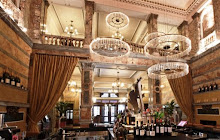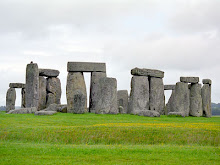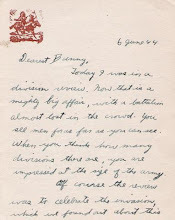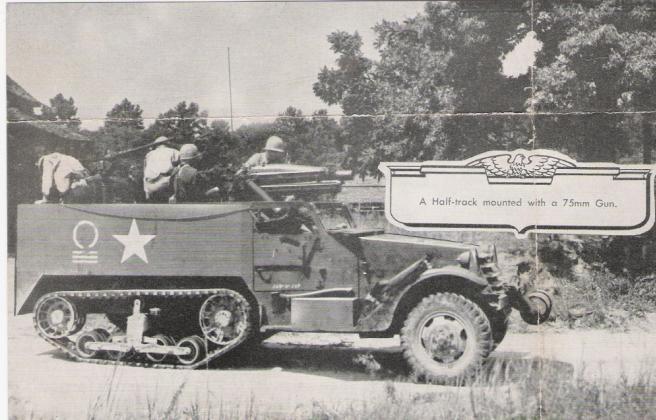Somewhere in France
Hello, my Honey—
At last we are back where I am able to write a real letter
to you. I am very glad of the chance, too, you can imagine! Right now I am
quartered with a M. Kaiser and he has cooperated very well in giving me ink and
paper to write on. It’s not the best in the world but it serves the purpose
very well.
I am feeling quite “mellow” today, for the first time in
many days. We arrived here early one morning, and spent most of the day hunting
quarters for the men. Then yesterday at three P.M. I got free and am now
resting with all my might and main. I slept a solid 15 hours last night—on a
real mattress! That came just after the
Colonel the tank battalion “C” company is now working with fed all of us
officers a Christmas turkey with all the fixin’s, beer, apples, candy, etc.,
etc. That was the first meal I had had in 18 hours so you can see how it was
enjoyed. Then this morning we had pancakes for breakfast. My cook friends made
mine special, frying them with butter in them. I ate all I could hold and am
now in perfect condition to write to my best girl. She has been badly neglected
lately, and I wish I could make up for it. She’s such a wonderful girl, you
know, that she should never be neglected.
Guess I’ll just write along whatever I am thinking about,
Hon. There is more to tell than I could ever cover, so I’ll just say all I can
of it as it comes. For local color I might describe the room I am writing in.
It is M. Kaiser’s living room, with a richly carved stove in one corner, a
clock that has chimes, on the wall between two large religious pictures; two
Millet paintings are opposite—The Angelus and The Gleaners. Now there is a
Christmas tree on the table. It looks like an American tree, except there are
no electrical trimmings. The three little children here are very fond of their
“Kristbaum,” and are like children everywhere. I wish I could understand their
dialect, which they refuse to call German. But I know it is not French. The
middle-aged people can speak French, but the old and very young know
only this German dialect. They have many religious mottoes on the wall, and
they are all in German. So are their books. This room could easily come out of
a fairy tale—I am the only thing that is not completely quaint and European
here.
Of course you know, Honey, that I have done many things
lately that I haven’t told you about. One reason was censorship rules, another,
time available to write, and another was I didn’t want to worry you. The first
two couldn’t be helped, but the last one could. I think now that I was wrong in
not telling you all I could—I didn’t practice what I preach about telling each
other everything and being perfectly sincere all the time. That is more
important than anything. And anyway, perhaps you would be more at ease if you
knew all you could than if I tried to pad things for you. So please forgive me,
Hon, from now on I shall tell all I can about what I do, as truthfully as I can
and without making them better or worse than they are.
Let’s see, I told you about catching those AWOL soldiers
sometime back, right? Well, when we left that place we were headed for the
front with the mission of breaking through the Maginot line. We shivered around
in the mud a few days jockeying into position. Finally we got so cold we just
looked forward to this heat of battle they talk about. Of course, our orders
came about 2 a.m., and I rolled out from about 2 inches of new fallen snow that
had gathered on my sleeping bag and got my boys ready to go. We went from one
assembly area to another, and finally wound up spending the next night in a Maginot
pillbox—Everybody was cold but me, and I slept on the lee side of “Falstaff”
Forchielli—he just radiates heat. We took off early the next morning, bucked a
few pillboxes and made a grand assault on a village. We “done noble” and the
second platoon occupied the place all alone that first night—with German
artillery falling all over the place. In “C” company that town is known as “Our
Town” now. We took it, held it, lived in it and have passed through it many
times since. After the attack things were pretty quiet except for snipers, a
few mines and incessant artillery. But these were compensated for by regular
chow, relative comfort (we could sleep in the houses we took) and a certain
sense of pride in showing the big bugs the area you had taken. Colonels treat
us Loolys like white men when we know the places to duck to and they don’t.
Time went by in “our town,” a thousand little things happening each day—a few
prisoners, civilians to evacuate, oh yes!, and a night patrol of mine out after
a mortar position that drew for me a letter of commendation. I don’t really
know why—we only found out where the Germans had been a few minutes ago. Maybe
they saw us coming and ran; anyway we got credit for clearing out that woods
and it was only a 5 man patrol. They said if we had received any enemy fire, it
would have been worth a silver star for me! I am satisfied with the letter as
long as they do not fire! American artillery has been our main worry on
patrols—no matter how often you tell them where you are going, they always seem
to plop a concentration right on top of you before you get back.
As the situation changed the 2nd platoon came to occupy hill
310 [near Moyenvic and Dieuze, Lorraine] defensively. We sat on it for about a week and had a lot of fun, except for
sweating out the possible counter-attacks. Jerry was on the next ridge
over—front, right front, and left front. We would lay in our positions and
snipe or direct mortar and artillery fire over a radio. It makes you feel very
powerful to direct corps artillery—like Zeus with his thunderbolts. German
morale seemed very low and many surrendered. Hill 310 was the point of our
front >
—like that—so everybody up to the general staff came up to see how the 2nd
platoon was doing on it. We were well dug in, so it really wasn’t too rought—we
didn’t get much big stuff on us—after the first couple days, tho, there was
enough so that few but my own platoon cared to come up on the hill—that was how
we got so much practice with artillery control. We had a loud speaker from
corps set up on our hill and ask the Germans to surrender. They listened
politely and then began sniping at the speaker. That was O.K. except I was
lying just under the speaker. I had them get it off my hill very quickly.
I guess you do not know Lt. Parsons—he was a southerner in
my O.C.S. class. He has a mortar platoon here and we worked together all along.
He would come to my O.P. and direct the fire of his platoon—he used to get a
big kick out of firing white phosphorous shells and chasing Jerries all over
the hill with it. It makes them come out of their holes and run. Lt. Bukovinac
has left us for a time at least. We hope he will be back with us in the near
future. He thanked you for the Xmas card as do all the other “C” company
officers. It was very thoughtful of you, Hon.
We had a busy Christmas day, but our morale was of the best.
I spent a part of Christmas eve at my most forward listening post, and had all
the usual thoughts of the incongruity of it all as I listened to the German
vehicles and voices in the clear cold starry night. There was no singing
“Silent Night” across the lines tho, and our only greetings to them were
beautifully bursting incendiary shells that looked for all the world like Xmas
lights.
I did have time for a few dreams of you and our future on
Christmas Day. One I like best, one that seems from here like the very
consummation of all dreams, is of meeting you first after the war. It always
takes place in the Great North Station, and we are anticipating a few days by
ourselves in the Bradford Hotel. That day will be a great beginning for us,
Hon, and it can’t come too fast for me. You know how much I love you, Bunny –
it is the most real and the most precious and the best thing in my life. I know
that more and more as time goes by, and I can never forget it – even in the
thick of this lousy war.
All yours always,
Wallace









